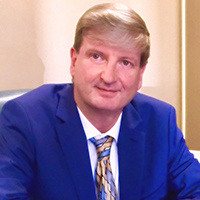Hewitt Felony Lawyer, Wisconsin
Not enough matches for Hewitt Felony lawyer.
Below are all Hewitt Criminal lawyers.
Peter C. Lloyd
✓ VERIFIEDDivorce & Family Law, Criminal, Traffic, Child Custody, Child Support
Attorney Peter Lloyd is an experienced lawyer practicing law in the Central Wisconsin area. He limits his practice to specific areas (family, criminal... (more)
Shari L. Post
Divorce & Family Law, Criminal, Social Security, Landlord-Tenant
Status: In Good Standing Licensed: 21 Years
Gregory J. Jerabek
Child Support, Divorce & Family Law, Criminal, Bankruptcy & Debt
Status: In Good Standing
Alex Joseph Hewett
Real Estate, Divorce, Criminal, Contract
Status: In Good Standing Licensed: 11 Years
Jonathan A. Barnett
Landlord-Tenant, Traffic, Workers' Compensation, DUI-DWI
Status: In Good Standing
James T. Quinn
Real Estate, Child Custody, Divorce & Family Law, Criminal
Status: In Good Standing Licensed: 48 Years


